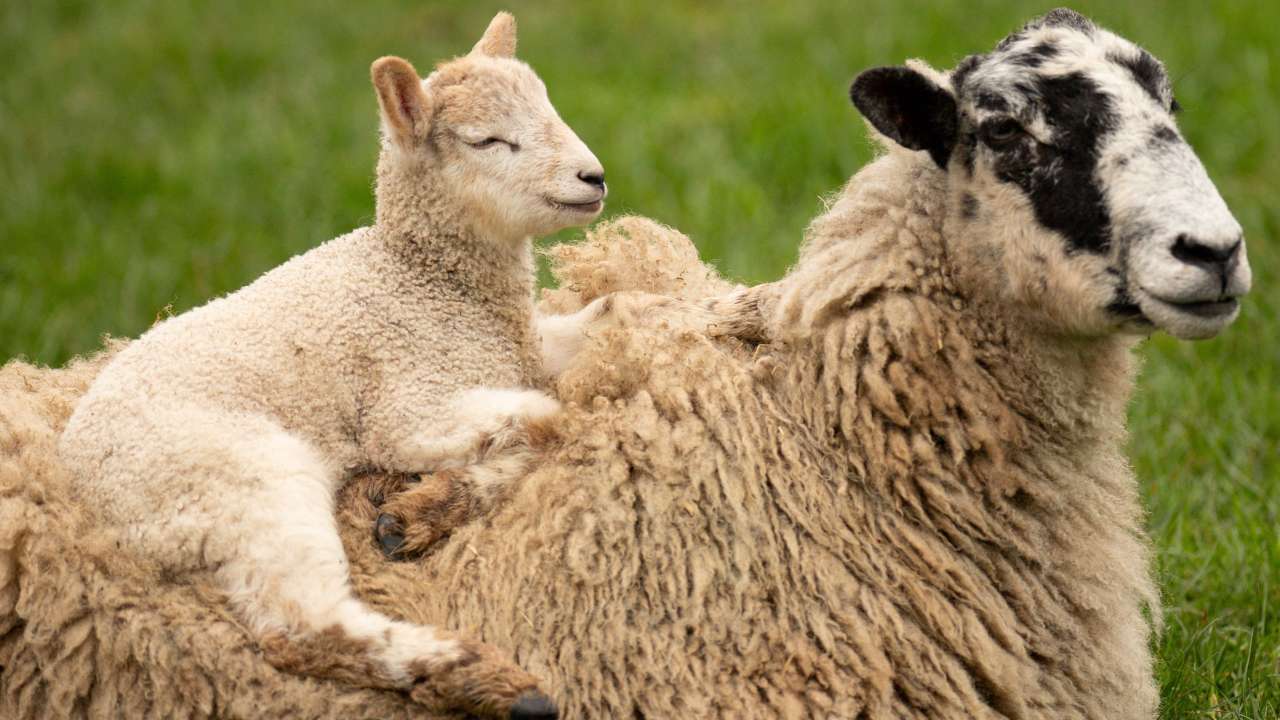Farmers have been warned a new strain of the bluetongue virus could be on its way to Britain, potentially impacting livestock across the country.
One of the key symptoms of the disease, which can be carried by midges, is a blue, swollen tongue and concerns are growing as the summer months approach.
But what kind of disease is it, what should farmers do to protect their livestock, and why are experts so worried? ITV News explains.
What is bluetongue?
Bluetongue is a virus spread by biting midges which impacts livestock such as cattle, sheep and goats.
It can also affect deer and llamas, but humans and food safety are not at risk.
In rare cases, dogs can catch bluetongue if they eat infected material, such as the placenta or other birthing tissue of an animal with the disease.
What are the symptoms?
The disease can cause blue and swollen tongue, fever, lesions and redness of the eyes, mouth and nose.
It can also reduce the amount of milk an animal is capable of producing, and in the most severe cases, can cause death.
Has bluetongue been found in Britain?
A new strain of bluetongue known as BTV-3, which emerged in the Netherlands in September 2023, was first identified in England in November.
Since then there have been 126 cases in the outbreak of seven sheep and 119 cattle across Kent, Norfolk, Suffolk and Surrey.
However, there is no evidence the new bluetongue variant is circulating generally among midges in Britain.
How could it spread over from Europe?
Midges can be carried across long distances by wind. The Animal and Plant Health Agency (APHA) has warned in a risk assessment there is a “very high probability” of the new strain of bluetongue being blown into Britain from northern Europe.
There is also a medium risk of another strain, BTV-8, being carried in by midges blown from northern France.
Concerns are growing as the summer months approach, with biting midges most active between April and November. Their movement across long distances depends on wind patterns and temperatures, according to experts.

How can the spread of the disease be stopped?
There is currently no vaccine in the UK for the BTV-3 strain of the virus, although a new vaccine has been approved for emergency use from the start of May in the Netherlands and Belgium.
In a statement, Biosecurity Minister Lord Douglas Miller said: “We are actively engaging with vaccine manufacturers on the development of a BTV-3 vaccine for use in the UK.”
The Animal and Plant Health Agency (APHA) have been monitoring bluetongue by using midge traps set up across the country.
If it starts to spread more widely, infection control zones could be used to restrict the movement of vulnerable animals. APHA have said culling livestock would not be an effective response.
What impact will this have on farmers?
President of the National Farmers’ Union Tom Bradshaw said: “The impact of BTV-3 in the Netherlands has been devastating for many farmers, especially in sheep flocks.
“Here in the UK, livestock farmers are anxious to protect their livestock as the risk of midge incursion increases with the warmer weather.
“While we all know that a vaccine provides the long-term solution it is becoming increasingly clear that the Dutch BTV-3 vaccine won’t be authorised for use in the UK quickly enough to protect livestock this summer.
“Defra’s own risk assessment shows that bluetongue is highly likely to spread widely across the UK, therefore it’s imperative that Defra, vaccine manufacturers and the livestock sector work together to ensure a vaccine is authorised and available as soon as possible to help minimise the impact of this disease.
“Farmers should remain vigilant for signs of the disease and ensure their holding details are correctly recorded with Defra or the APHA.”
What can farmers do?
Farmers are being urged to remain vigilant and monitor their animals frequently, while making sure their livestock, land and contact details are registered with the APHA in case of an outbreak.
David Holdsworth, Chief Executive Officer, Animal and Plant Health Agency said: “Our field teams stand ready and will continue to work closely with farmers and animal keepers to ensure they are kept up to date and supported during any outbreak.”
Free tests for bluetongue will be offered to farmers in high risk counties when the risk of transmission, according to Lord Miller.
How can I report a case of bluetongue?
Bluetongue is a ‘notifiable’ disease, meaning those who fail to report it are breaking the law.
If you suspect bluetongue, you must report it immediately by calling:
- 03000 200 301 in England
- 03003 038 268 in Wales
- Your local Field Services Office in Scotland
Follow STV News on WhatsApp
Scan the QR code on your mobile device for all the latest news from around the country


























